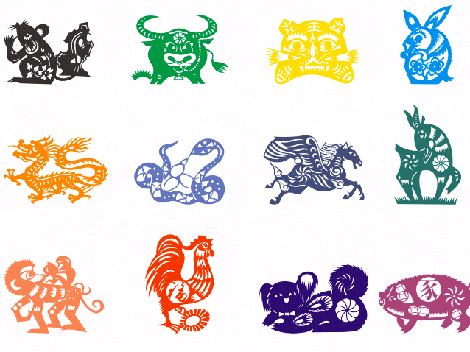I have a feeling, at least among Americans, I might not be the only one who first discovered my zodiac sign in a Chinese Restaurant. Remember those paper placemats? I can’t remember how old I was when I found out I was born in the Year of the Snake but I can say for sure that it was before I could even speak a word of Chinese (words learned from a fortune cookie don’t count). I do remember sitting in a Chinese restaurant when I was 13 or 14 and seeing that 2013, which seemed an eternity away, would be the next Year of the Snake.
Yet, here we are in 2013. Chinese New Year has come and gone. It’s my year – the Year of the Snake and I’m in China!
I figured something wonderfully auspicious must be in store for me this year, so leading up to this Chinese New Year, I started asking Chinese friends, colleagues, and taxi drivers: What happens on my year?
Their answers surprised me.
Here’s what I learned: “My year” or ben ming nian (本命年) marks the beginning of another 12-year life cycle. This transition means I am more vulnerable to bad luck because according to traditional Chinese folklore, I will encounter and may well displease the fierce and powerful deity, Tai Sui (太岁). Thus to ward off bad luck, I must wear red every day, usually in the form of a ribbon, bracelet, waistband, socks, or underwear.
I’ve been thinking about why this surprised me so much. I think from my western perspective, I just assumed one’s zodiac year could only bring good fortune. Though there’s no good comparison in western culture, I started thinking about other western superstitions that happen infrequently – watching a shooting star, spotting a rainbow, or finding a four-leaf clover – and how they all are omens of good fortune in western culture. Maybe this had something to do with my thinking?
What does this say about Chinese culture? I don’t feel like I have the qualification to answer definitively. But it does have me thinking about the Chinese culture of generally being more cautious and concerned about stability and harmony. It makes sense then that a superstitious event like your zodiac year forces you to be more careful and do what it takes to ward off bad luck.
I would be curious to hear what Chinese readers might have to say?
我觉得我应该不是唯一一个在中餐馆得知自己生肖的美国人。


